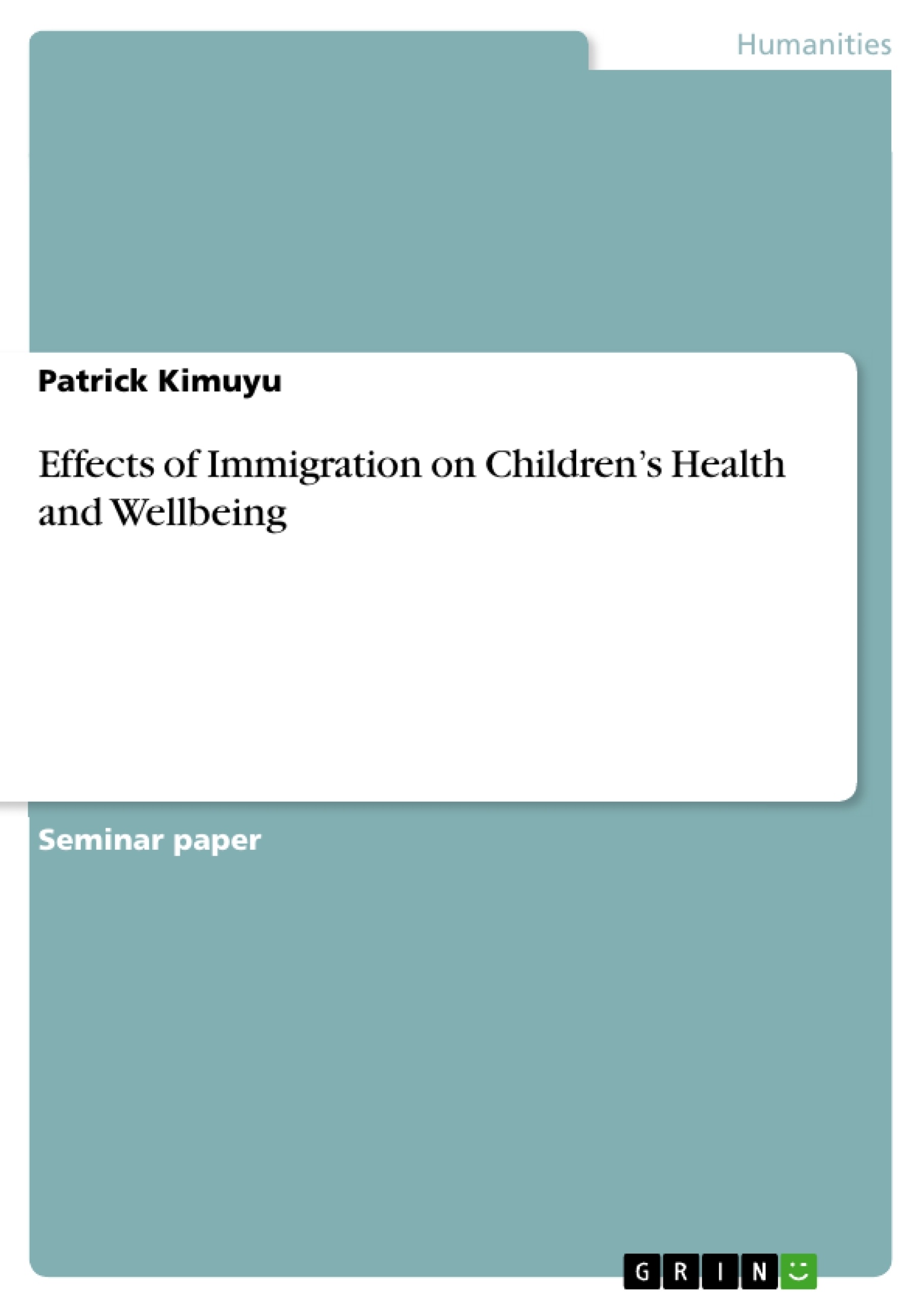Immigration has emerged as a serious social issue in different regions of the world. For instance, immigration into the US has raised immense concerns due to the threat of terrorism. This has led to policy responses that aim at enhancing homeland security. On the other hand, immigration comes with its share of economic implications, racial discrimination, and juvenile delinquencies. Of great concern are the effects of immigration on children. Children are considered to be prone to the negative consequences arising from immigration, which is attributable to their dependency nature and challenges in adapting to family dynamics, especially in diverse cultural settings. It is implicit that immigration has taken diverse trends, which are not consistent with the traditional social theories such as the straight-line assimilation. As such, there is need to investigate this aspect from an advanced perspective. Evidence indicates that one in every five children in the US is either a second-generation immigrant or an immigrant child. This paper offers a comprehensive analysis of the effects of immigration on children.
Table of Contents
- Introduction
- Aspect of Culture
- Acculturation
- Social Interaction
- Communication
- Family Separations
- Vulnerability to Health and Social Risks
- Socioeconomic status
- Conclusion
Objectives and Key Themes
This paper aims to provide a comprehensive analysis of the effects of immigration on children's health and well-being. It delves into the various challenges that immigrant children face, particularly in cultural adaptation, social interaction, and their vulnerability to health and social risks. The paper explores the impact of immigration on children's development, considering factors such as acculturation stress, social competence, and the influence of cultural values on childrearing practices.
- Cultural Adaptation and Acculturation Stress
- Social Interaction and Social Competence
- Impact of Immigration on Childrearing Practices
- Vulnerability to Health and Social Risks
- Socioeconomic Status and its Influence on Children's Well-being
Chapter Summaries
- Introduction: This chapter sets the stage for the discussion by outlining the complexities of immigration and its impact on children. It highlights the growing concerns about immigration and its various implications, including economic, social, and cultural challenges faced by immigrant children.
- Aspect of Culture: This chapter delves into the multifaceted aspects of culture that play a significant role in shaping the experiences of immigrant children. It explores the challenges they face in adapting to new cultural settings, including the complexities of acculturation, social interaction, communication, family separations, and vulnerability to health and social risks.
- Acculturation: This chapter specifically examines the process of acculturation and its impact on immigrant children. It discusses the various factors that contribute to acculturation stress, such as unfamiliarity with traditions and customs, language barriers, and the transition from majority to minority status. The chapter highlights the potential psychological consequences of acculturation stress on children.
- Social Interaction: This chapter focuses on the challenges that immigrant children face in social interaction. It explores how cultural differences can affect their social competence, parental warmth, peer interaction, and parent-child communication. The chapter also discusses how cultural values and beliefs influence childrearing practices and their impact on children's social development.
Keywords
The key themes and concepts explored in this work include immigration, children's health, well-being, cultural adaptation, acculturation, social interaction, social competence, childrearing practices, vulnerability to health and social risks, and socioeconomic status.
- Arbeit zitieren
- Patrick Kimuyu (Autor:in), 2018, Effects of Immigration on Children’s Health and Wellbeing, München, GRIN Verlag, https://www.grin.com/document/424113



